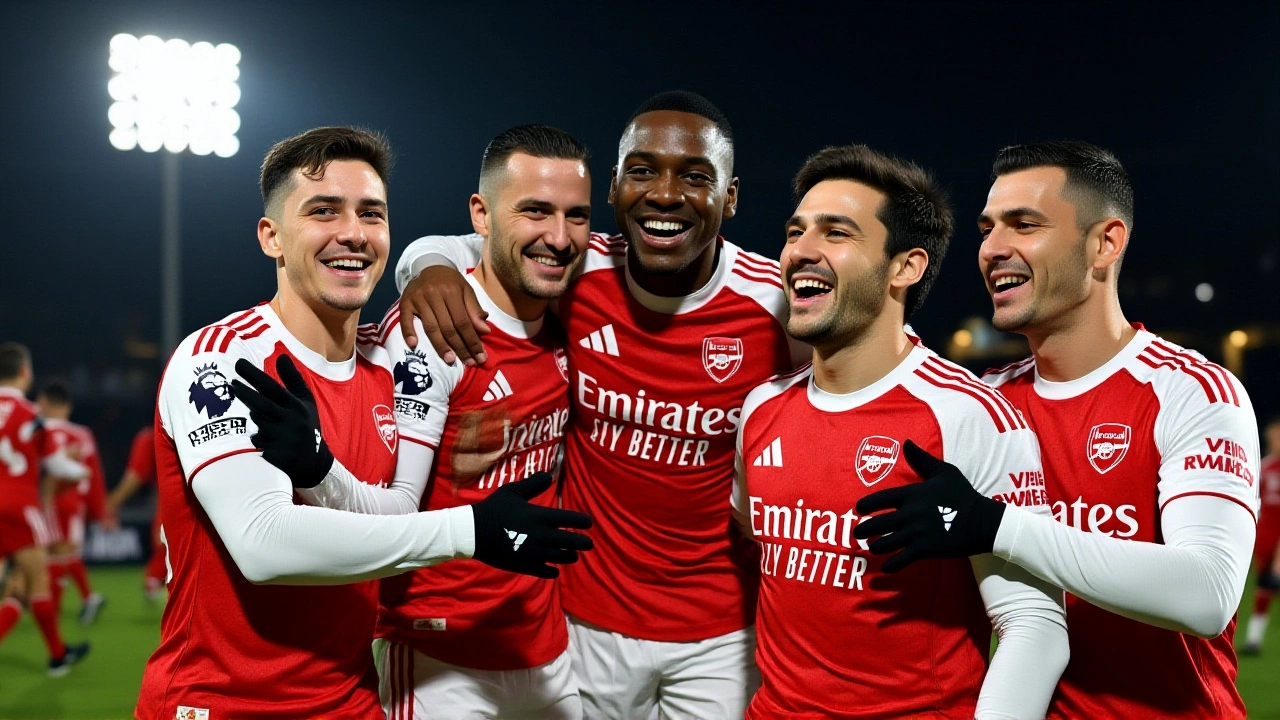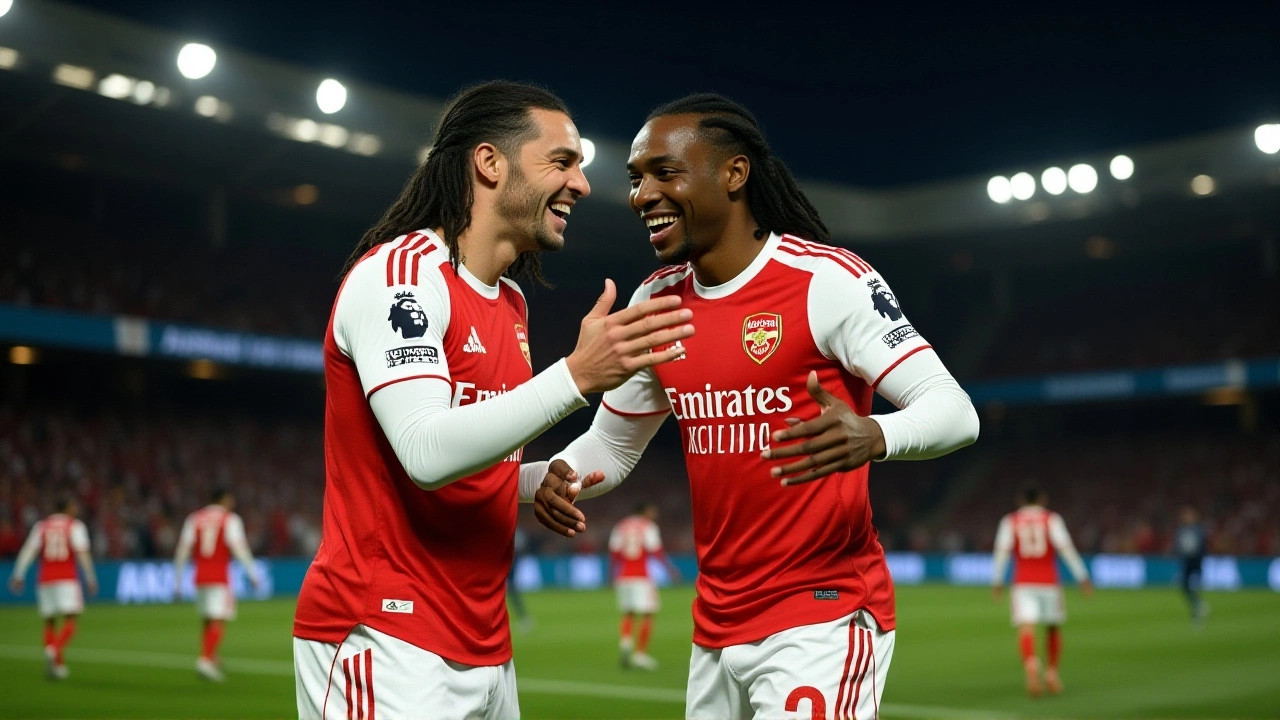
The North London derby isn’t just another match—it’s a pulse-check for the entire Premier League. This Sunday, November 23, 2025, at 11:30 a.m. ET, Arsenal welcomes Tottenham Hotspur to the Emirates Stadium in a clash that could reshape the title race. The 198th meeting between these bitter rivals arrives at a pivotal moment: Arsenal sits atop the table, but their 10-match winning streak ended in a frustrating 2-2 draw at Sunderland. Meanwhile, Tottenham, fifth in the standings, carries the league’s most dominant away record—13 points from 15 possible, 12 goals scored, just three conceded. This isn’t just about pride. It’s about momentum, psychology, and who really belongs at the top.
Why This Derby Feels Different This Season
Historically, North London derbies have swung on emotion, grit, and the weight of decades of rivalry. But this one? It’s laced with tangible stakes. Arsenal’s lead at the summit is now down to just four points after Manchester City’s 3-1 win over Newcastle on Saturday, November 22. That result, called by Peter Drury and Graeme Le Saux from St. James’ Park, turned the pressure dial to eleven for Mikel Arteta’s side. They can’t afford slip-ups—not with City breathing down their necks, and not with Tottenham, of all teams, playing like the most dangerous visitors in the league.
Tottenham’s away form is almost absurd. In 2025-26, they’ve won six of their seven away matches, drawing only one. They’ve outscored opponents 12-3 on the road. No other team comes close. Even Manchester City, who’ve won seven away games, have conceded nine. Spurs aren’t just surviving on the road—they’re dismantling teams. Harry Kane’s leadership, James Maddison’s creativity, and the emerging threat of Brennan Johnson have turned them into a nightmare for any team playing at home.
The Human Side of the Rivalry
When you walk into the Emirates on matchday, you don’t just see fans—you hear them. The chants start hours before kickoff. The tension builds like a pressure cooker. And when the final whistle blows, it’s never just about three points. It’s about bragging rights that echo through pubs in Highbury and North Finchley for months. Arsenal’s fans still remember the 2004 ‘Invincibles’ season, when they went unbeaten and crushed Spurs 5-1 in the derby. Tottenham’s supporters still talk about the 2017 FA Cup semifinal, when Dele Alli’s goal sent them to Wembley and left the Gunners in stunned silence.
This time, it’s about more than nostalgia. It’s about identity. Arsenal, once the dominant force in North London, now have to prove they’ve reclaimed it. Tottenham, under Ange Postecoglou, are trying to rewrite their legacy—not as the underdogs, but as the team that beats the giants. And here’s the twist: both managers have spent the week insisting the match “isn’t about the rivalry.” But the players? They know better. One Arsenal defender told reporters, “You don’t prepare for this like you do for Brighton. You feel it in your bones.”
What the Broadcast Team Brings to the Table
For U.S. viewers, the match lands on Peacock and NBCSN at 11:30 a.m. ET, with Jon Champion on play-by-play and Graeme Le Saux as color analyst. Champion’s voice is the sound of Premier League Sundays in America—he knows when to hold back, when to explode, and when to let the crowd do the talking. Le Saux, a former left-back for Chelsea and England, brings tactical nuance you won’t get elsewhere. He’ll spot the space between Arsenal’s center-backs that Spurs will try to exploit with diagonal runs.
And the pre-game show? Premier League Live kicks off at 11 a.m. ET on USA Network and Peacock, with analysis from former stars like Lee Dixon and Robbie Earle. Then, after the final whistle, Goal Zone at 1:30 p.m. ET will break down every key moment—goals, tackles, red cards, missed chances. It’s a full-day experience for fans who treat this fixture like a holiday.

The Bigger Picture: What’s at Stake Beyond the Three Points
Winning this match could be the difference between Arsenal finishing first or second. Lose, and City’s momentum becomes unstoppable. A draw? That’s a moral victory for Spurs, but a tactical defeat for Arsenal. And the ripple effects? Tottenham’s confidence will surge into their next matches against Liverpool and Chelsea. Arsenal’s defense, already shaky after conceding twice to Sunderland, could face even more scrutiny.
There’s also the financial angle. Broadcast rights, merchandise sales, and ticket demand spike for derbies. In 2024, the last North London derby generated over $2.3 million in global merchandise sales in the 72 hours after the match. This year, with both teams in the top five and the title race tight, that number could top $3 million. It’s not just a game—it’s a market event.
What’s Next?
If Arsenal wins, they’ll be 10 points clear of City with just 10 games left. If Tottenham wins, they’ll be within two points of fourth place—and the Champions League spots start to feel within reach. Either way, the league table will look drastically different by next Monday. And don’t forget: the return leg at Tottenham Hotspur Stadium is scheduled for April 5, 2026. That match will carry even more weight—because whoever wins this one will enter the rematch with psychological dominance.

Background: A Rivalry Forged in Fire
The North London derby dates back to 1909, when Arsenal moved from Woolwich to Highbury—right next door to Tottenham’s White Hart Lane. The move sparked outrage. Spurs fans called it a betrayal. The rivalry exploded in the 1930s, when Arsenal won five league titles in seven years, while Spurs languished. It deepened in the 1970s and 80s, when both clubs battled for European spots. The 1991 FA Cup final, where Arsenal beat Spurs 2-1, remains one of the most emotional matches in English football history. Since then, the rivalry has been defined by close calls, last-minute goals, and managerial battles. Arsène Wenger vs. Harry Redknapp. Arsène Wenger vs. Mauricio Pochettino. Now, Mikel Arteta vs. Ange Postecoglou. The names change. The hatred doesn’t.
Frequently Asked Questions
How does this match affect Arsenal’s title chances?
A win for Arsenal would extend their lead over Manchester City to seven points with 10 games left, making them heavy favorites to claim the title. A loss, however, would cut the gap to just one point and hand City the psychological edge. With City playing a more aggressive style and having a game in hand, Arsenal can’t afford to drop points here.
Why is Tottenham’s away record so impressive this season?
Tottenham have scored 12 goals and conceded only three in seven away matches, the best in the Premier League. Their high press, quick transitions, and disciplined defending—led by Cristian Romero and James Maddison’s vision—have made them nearly impossible to contain on the road. They’ve won at Liverpool, Chelsea, and Manchester United this season.
Who are the key players to watch in this derby?
For Arsenal, Gabriel Jesus is crucial—he’s scored in five of his last six games. Martin Ødegaard’s set pieces could decide the match. For Tottenham, Harry Kane is the focal point, but Brennan Johnson’s pace on the counter could exploit Arsenal’s high defensive line. Goalkeeper Robin Olsen, who replaced Aaron Ramsdale after injury, will be under intense scrutiny.
Can this match impact the FA Cup or Champions League qualification?
Absolutely. A win for Tottenham would put them within two points of fourth place, making Champions League qualification realistic. For Arsenal, a loss could open the door for Liverpool or Chelsea to challenge for top four. Meanwhile, a dominant performance in this derby could give either side momentum heading into the FA Cup third round, scheduled for January 2026.
How does this derby compare to past ones in terms of intensity?
This one ranks among the most intense in the last 20 years. Unlike the 2019 derby, where both teams were mid-table, this time the league title is on the line. The stakes are higher, the media coverage is unprecedented, and both squads are healthier and more cohesive. With no major injuries in either squad, expect a fast, physical, and emotionally charged 90 minutes.